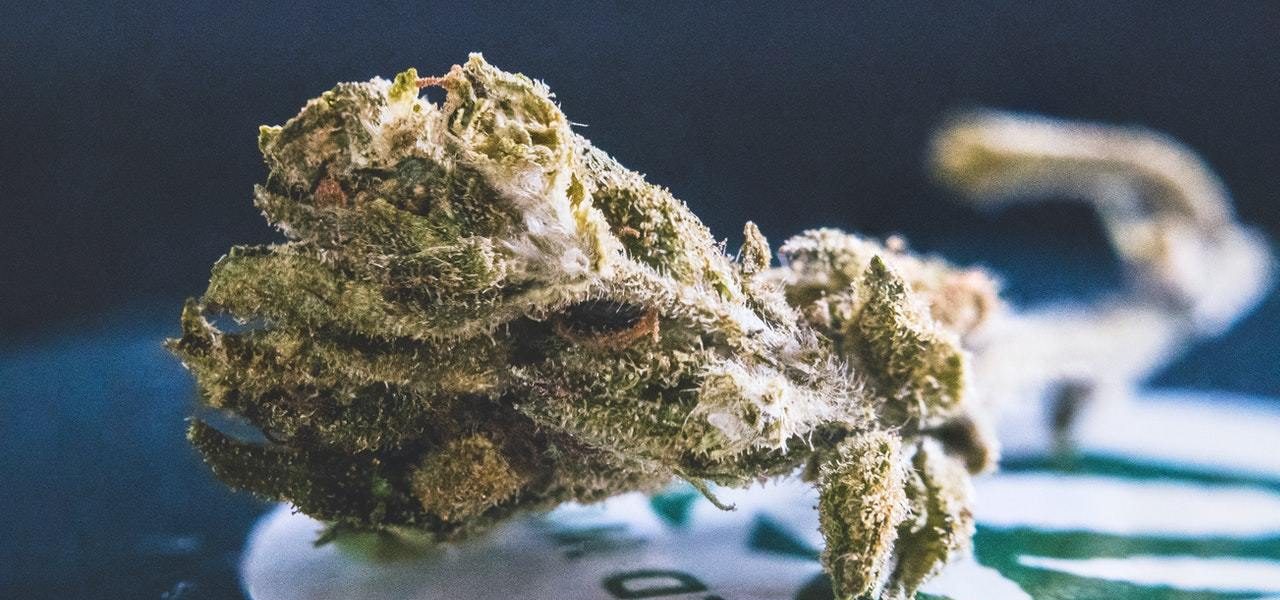If you have found yourself searching through your cabinet or pantry for some weed and discovered some long-forgotten nugs, a natural reaction would be to ask, “does marijuana go bad?” Normally, if you have stored your precious buds properly, then you have nothing to worry about. But if you have just kept it in a place with an open airflow and humidity, which should be highly unlikely, then most probably your weed has gone bad. So, to answer the question if marijuana expires – Yes, they do. In this article, we will try to answer all the frequently asked questions around weed going bad.
Marijuana went bad
What does it exactly mean when marijuana goes bad? Contrary to what you might think, cannabis that has gone bad does not have the same ill effects on you as a carton of milk or a jar of mayo that has expired or is past its expiration date. When weed goes bad, it just loses its potency. It is unlikely to lead to any serious health issues, but old weed will smell and taste off. It will lead to a harsh-tasting smoke that will cause a bad headache, burning throat, and coughing fits. In certain cases, however, when your pot has degraded due to mold, powdery mildew, or fungus, it is imperative to avoid smoking or consuming them and get rid of them immediately. Rot in your weed can cause serious health consequences, especially for people whose immune systems are compromised and weak. These problems range from nausea to sinus pain to congestion to invasive pulmonary disease that could be lethal.
There are several types of marijuana mold, including Botrytis cinerea (aka bud rot), Aspergillus, and Cryptococcus. Botrytis cinerea, also called gray mold, is the most common fungi affecting cannabis plants. It thrives best in cool, humid, temperate climates. While it is considered the least dangerous among the above-mentioned fungi, Botrytis cinerea can still lead to serious lung damage. Aspergillus and Cryptococcus, on the other hand, can often lead to deadly infections, targeting not only the lungs but our central nervous system and brain as well. So, while you may be tempted to just cut off the bits and parts that have been infected by mold, it is better and safer to just throw out the entire thing.
To identify marijuana gone bad, watch out for black spots, blotches of rusty hue, white spots, filminess, and deposits. Should you see any of these signs, just go ahead and just throw out your weed, even if you just bought it. The best thing to do is to learn and move on – what causes rot in weed? And do we make sure we avoid them?
Drying, Curing and Storing marijuana
The main reason for weed going bad or the development of molds is too much moisture, poor airflow, and contamination. So, whether you are buying your weed from a reputable dealer or growing them yourself, the process of drying, curing, and storing is key to ensure that your weed stays fresher longer.
Drying
As the name suggests, drying involves drying freshly harvested buds and removing as much moisture content as possible. Once dried, your buds will shrink in size and weight but they now can be smoked or vaporized properly. Several factors come into play when drying your buds. This includes the size of your buds as well as the temperature, humidity, and airflow of your drying space or room. The larger the buds, the more time you need to dry them. Generally, it will take around 7 to 12 days to completely and successfully dry your buds but, again, this is dependent on the variable factors mentioned.
Curing
Curing involves storing your buds properly over weeks to help develop their flavors and aromas. Technically speaking, it is the manipulation of the moisture deep within the buds to control the chemical reactions of its terpenes while preventing the buds from decaying. This step is especially important if you want to enjoy your weed for a long time, without losing its potency and flavors.
As mentioned earlier, temperature, humidity, airflow, as well as light can affect the potency, aroma, and taste of cannabis. The same factors need to be checked when properly curing or storing weed to maintain its quality for as long as possible. Choose the right container. Avoid using plastic baggies, tin cans, or other similar containers to store your weed. Instead, always opt to store them in dark-colored jars with airtight lids, like mason jars. These jars limit oxygen and light exposure and do not have any static charges that can affect your plant’s delicate trichomes. To manage humidity and light levels from hitting your jars, invest in humidity packs or something similar and store the containers in a cool, dark place away from sunlight. Any direct sunlight will immediately degrade your weed.
The easiest way to understand the process of curing is to liken it to aging wine. Letting wine sit in dry, dark storage space, avoiding any direct sunlight, and maintaining consistent temperatures and humidity ensures the wine’s full spectrum of flavors and smoothness.
Currently, there is a lot of discussion around storing weed in the freezer. While many users swear in the efficacy of storing marijuana in the freezer, science and several other experienced connoisseurs point out that freezing temperatures can cause trichomes to become brittle. As we all know, trichomes are hair-like appendages on plants that produce cannabinoids, including THC. Without them, your buds are good as useless. With the amount of money, time, and effort you have invested in your cannabis, they are worth the time and effort to properly dry, cure, and store them as well.
Have you ever questioned, does marijuana go bad? Or have you ever come across a weed that’s gone bad? While weed does go bad, the good news is that consuming one does not make you sick. Instead, you will feel sleepy or drowsy instead of high. In certain cases, when mold has taken over your weed, however, it is crucial to not worry about the money or time you’ve spent on the weed – throw them out immediately.



